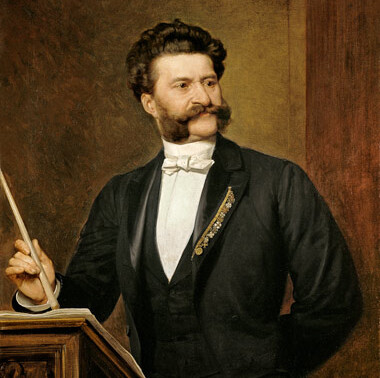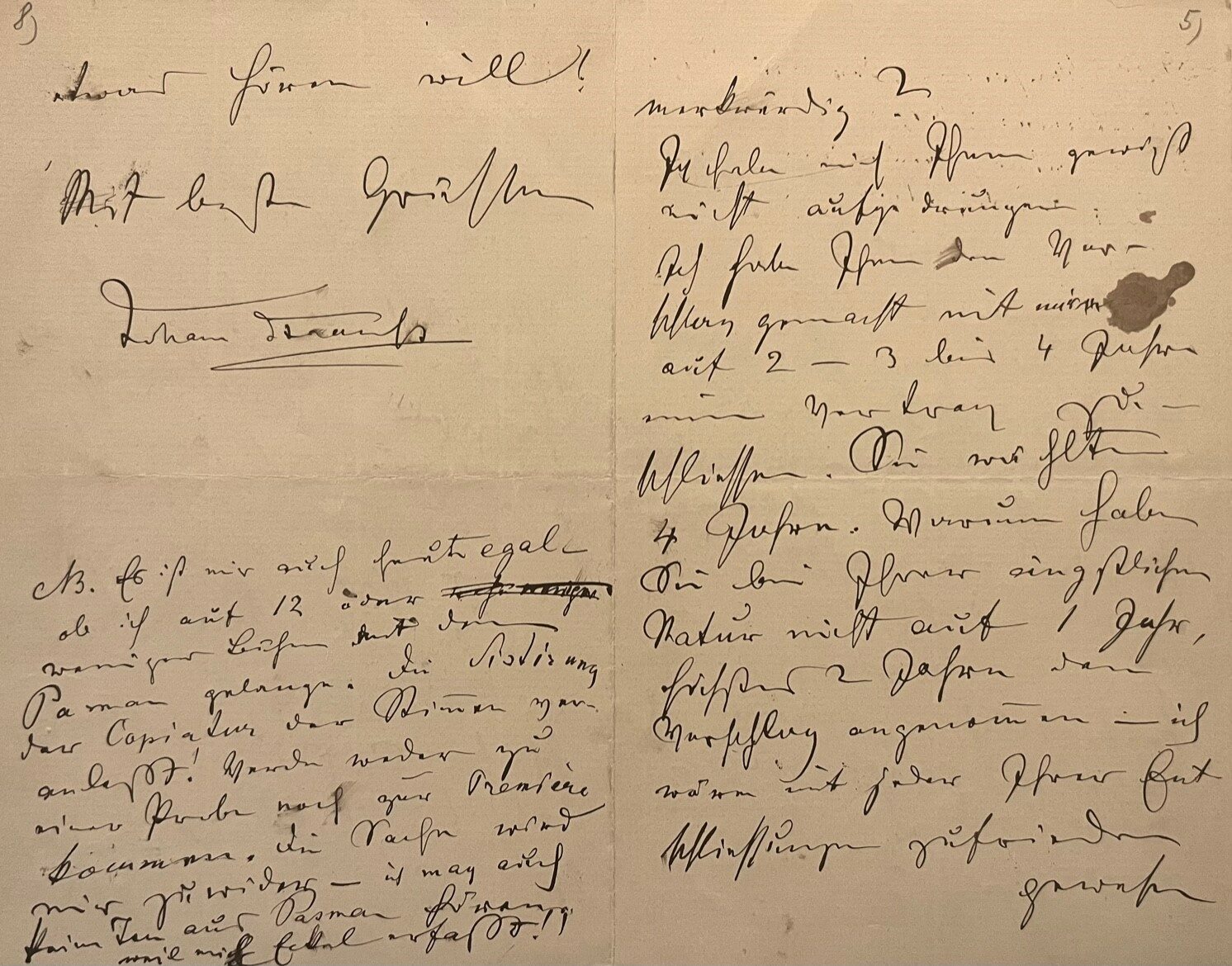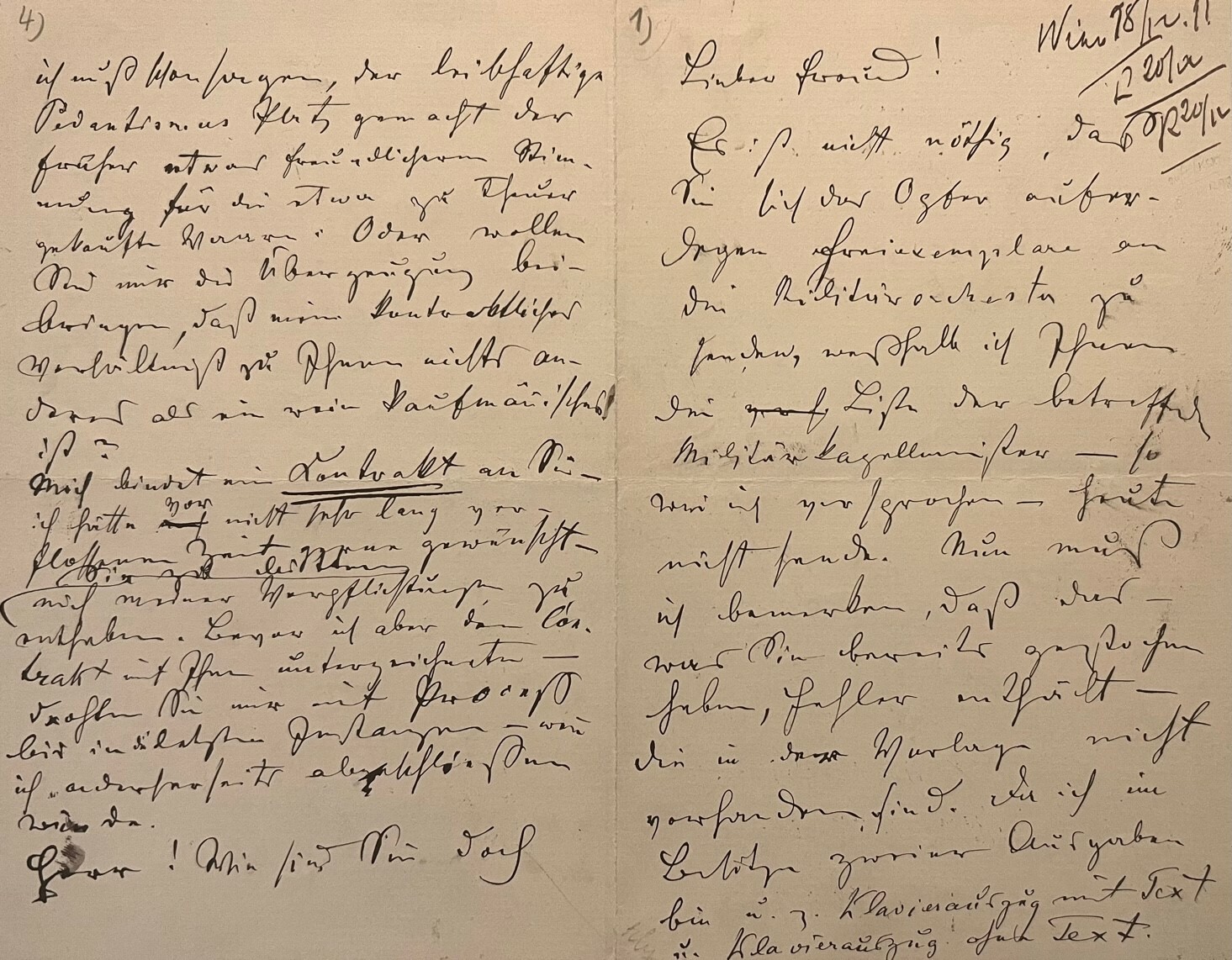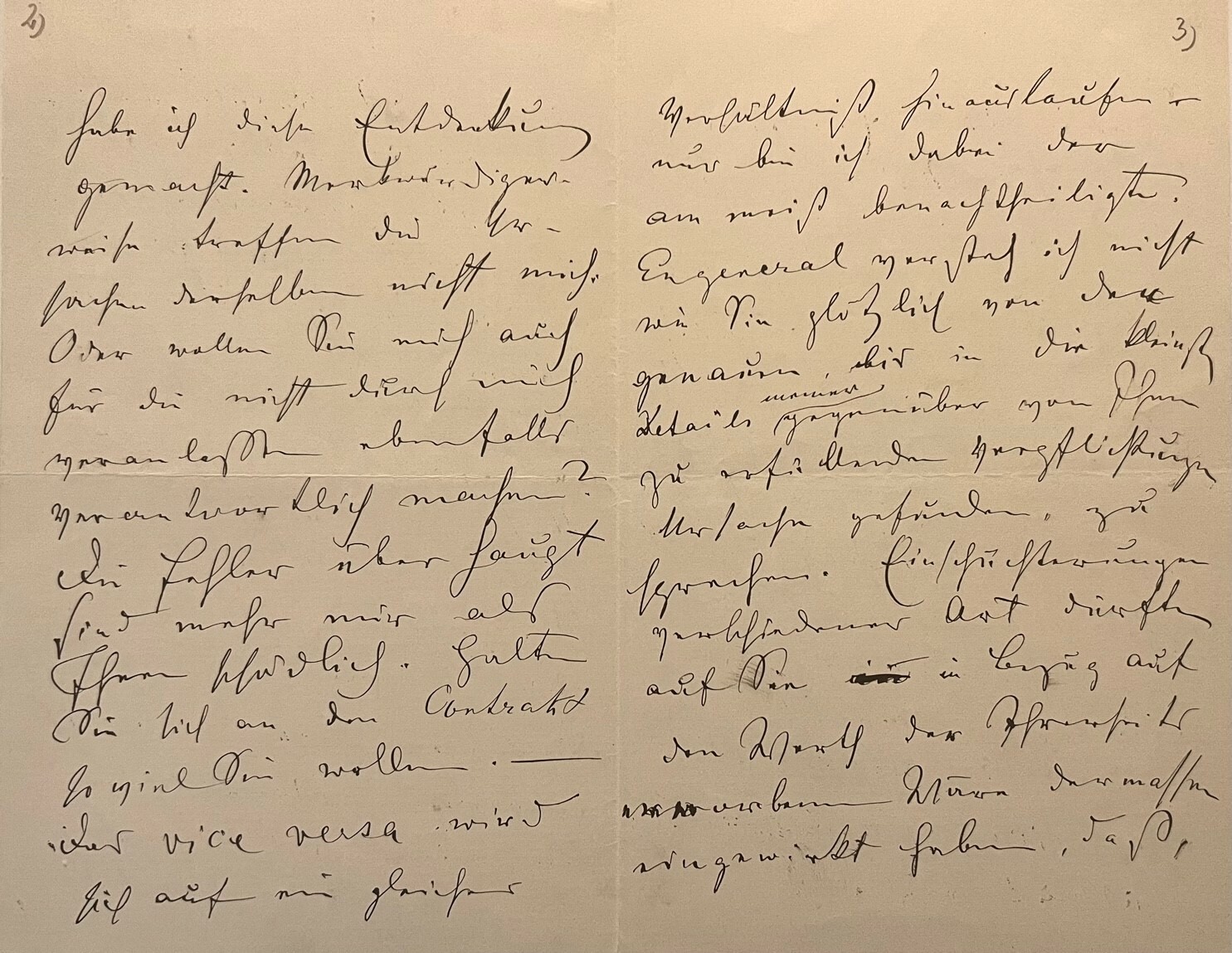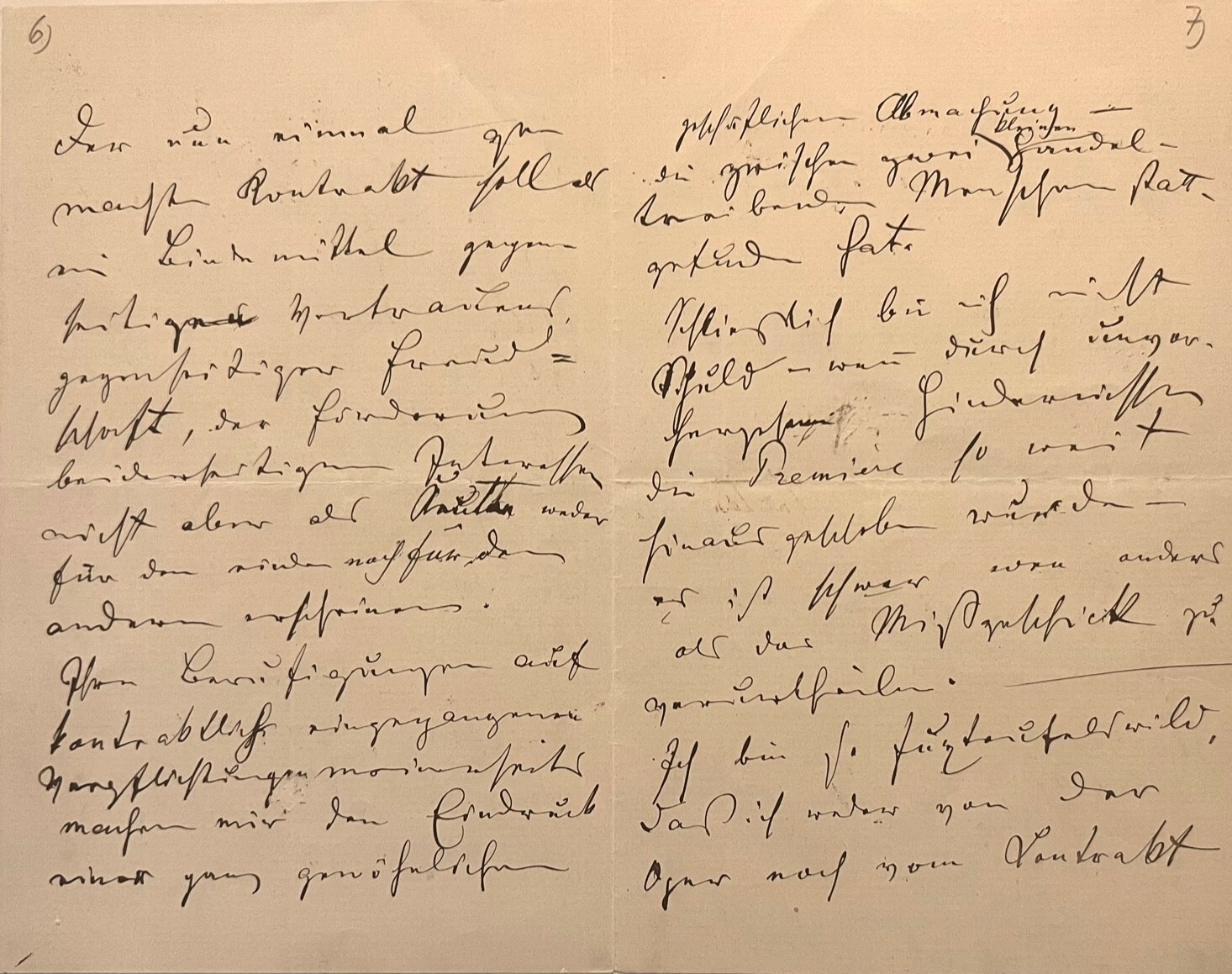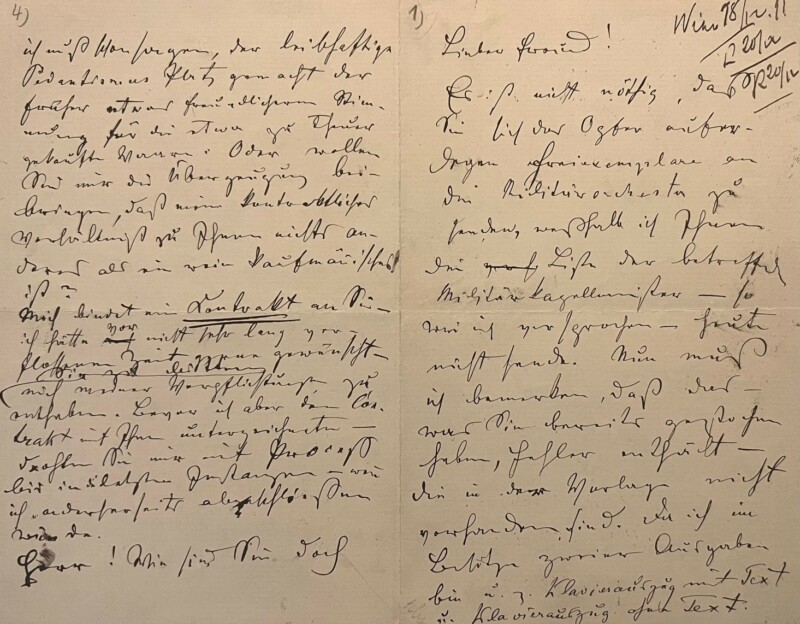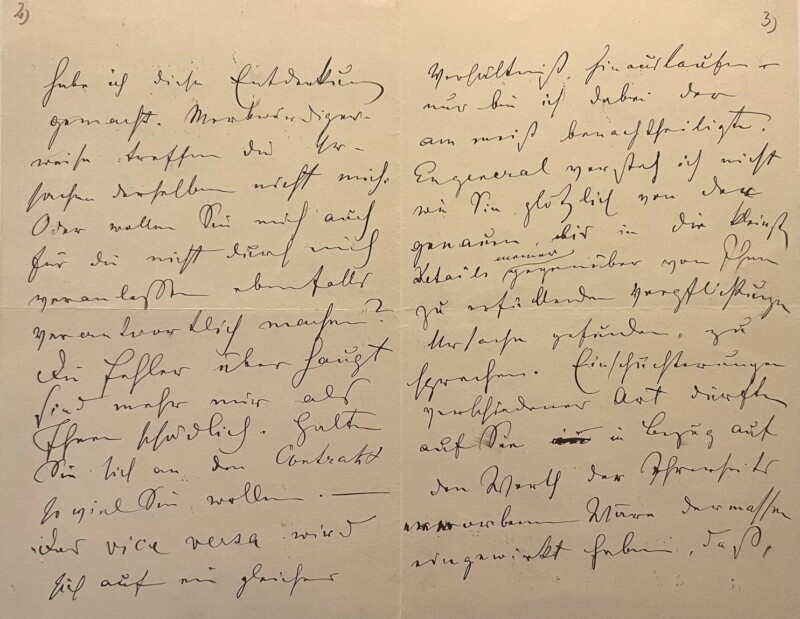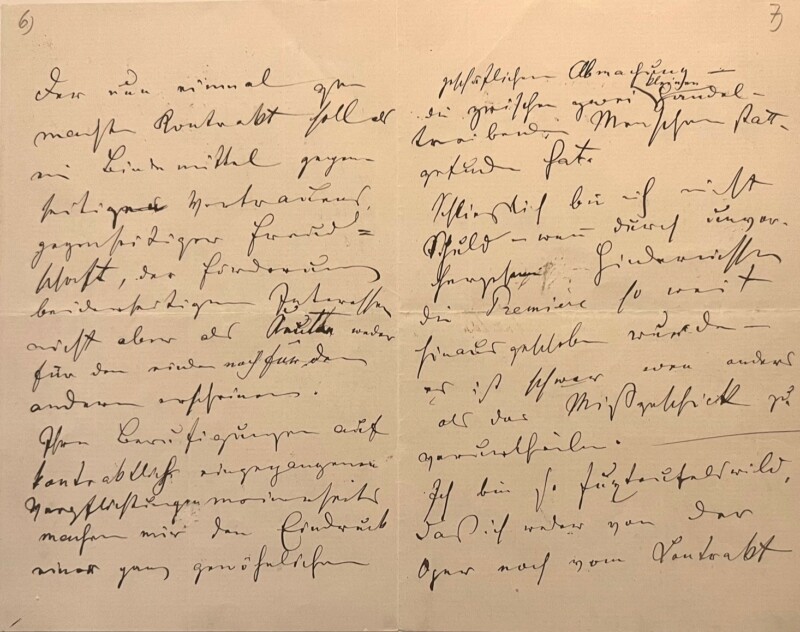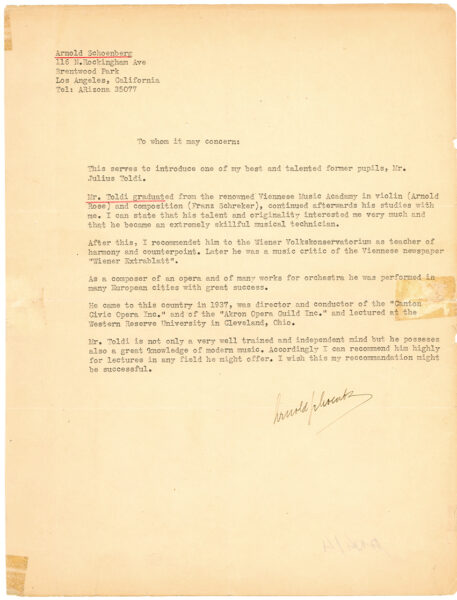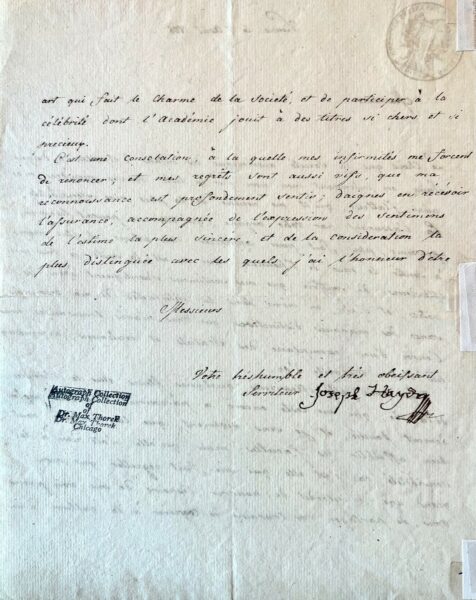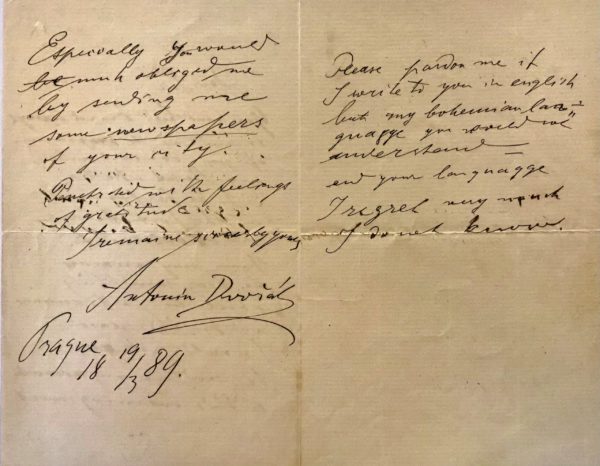“It is unnecessary for you to make the sacrifice to send complimentary copies to the military bands, for which reason I am not sending you the promised list of the respective band leaders today. Now I must remark that what you have already engraved contains errors that are not in the original. Since I have two editions, namely the piano excerpt with lyrics and the piano excerpt without lyrics, I have made this discovery. Strangely enough the causes for these are not on me. Or do you want to hold me responsible for those that are not caused by me as well? The mistakes as such are more harmful to me than to you. Keep to the contract as much as you want, the opposite will play out the same way, only that I am the one who is worse off. In general, I do not understand what suddenly gave you cause to bring up each of my obligations to you in the minutest detail. Intimidation of various kinds has apparently influenced you regarding the value of the goods you purchased such that the formerly friendly attitude towards goods purchased a little too dearly has, I must say, given way to the purest pedantry. Or do you intend to convince me that my contractual relationship with you is nothing but a purely business one? I am bound to you by a contract. Not too long ago, I would have very much liked to ask you to release me from my obligations. Before I signed the contract with you, you threatened me with lawsuits to the highest appeals court if I was to sign anywhere else. Sir! How peculiar are you??? I have most certainly not forced myself upon you. I proposed to you a contract for 2-3, up to 4 years. You chose 4 years. Why then, given your nervous nature, did you not accept my proposal for a 1 year, or 2 year contract at the most – I would have been content with any of your decisions. The contract, now that it is made, is supposed to serve as a further bond of mutual trust, mutual friendship, the promotion of mutual interests, but not as a knot for either one of us. Your reference to contractual obligations on my part gives me the impression of a common business deal, made between two simple merchants. After all, it is not my fault that the premiere was pushed out so far because of unforeseen obstacles. It is hard to blame anybody but ill fortune. I am so damn angry that I do not want to hear anything about the opera or the contract!… NB – Even now it does not matter to me whether I get Pazman on 12 or fewer stages. I have cancelled the copying of the parts! Will not come to any rehearsal or to the premiere. The whole thing is abhorrent to me – I do not want to hear a single note from Pazman, because it disgusts me…”
Strauss was the leading member of the renowned Austrian musical family which “raised popular music to a new expressive level, and by a melodic charm and a rhythmic verve, allied to a vivid sense of occasion… gave the Viennese waltz in particular its classic expression” (The New Grove Dictionary). Of his three-act comic opera, which he considered “the greatest effort of his life,” Strauss would later write, “I don’t want to make a fortune with Ritter Pazman. I only wrote it to prove that one can write more than dance music” (Johann Strauss, Linke). Strauss was satisfied neither with its January 1892 debut in Vienna, nor with the performances in Berlin the following June. It was, in fact, only the four presentations that April in Prague, under the direction of Austrian tenor and impresario Angelo Neumann that won the composer’s approval. The frustration Strauss felt about Ritter Pazman is vividly described in our emotional letter.
In very good condition. Scarce with such fine content.
